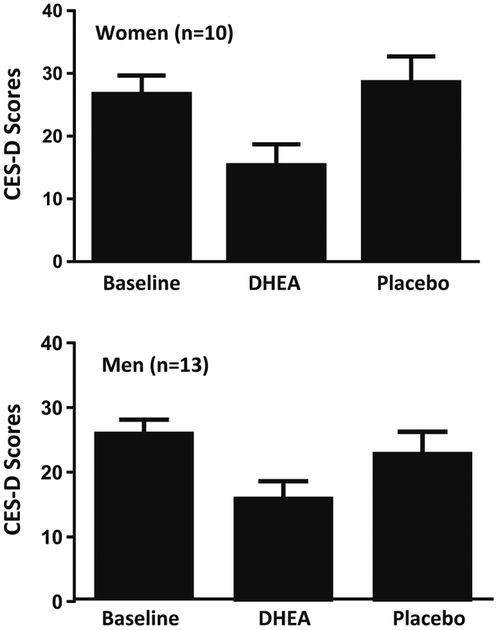Fig. 1.
CES-D scores in women and men with midlife-onset depression treated with DHEA–mean (SE). Men and women with midlife-onset depression showed a significant decrease in CES-D scores after 6 weeks of treatment with DHEA (ANOVA-R: treatment condition F2,40=14.9, p<0.001). Men and women responded similarly to DHEA, and no significant effects of sex were observed in the response to DHEA (ANOVA-R: main effect of sex F1,20=0.2, p=ns, interactive effect of sex by treatment condition F2,40 = 0.7, p = ns). CES-D scores were significantly lower after 6 weeks of DHEA treatment compared with baseline (t40=5.6, p<0.01) and placebo treatment (t40=4.8, p<0.01); there was no difference in CES-D scores between placebo treatment and baseline (t40=0.4 p=ns)

